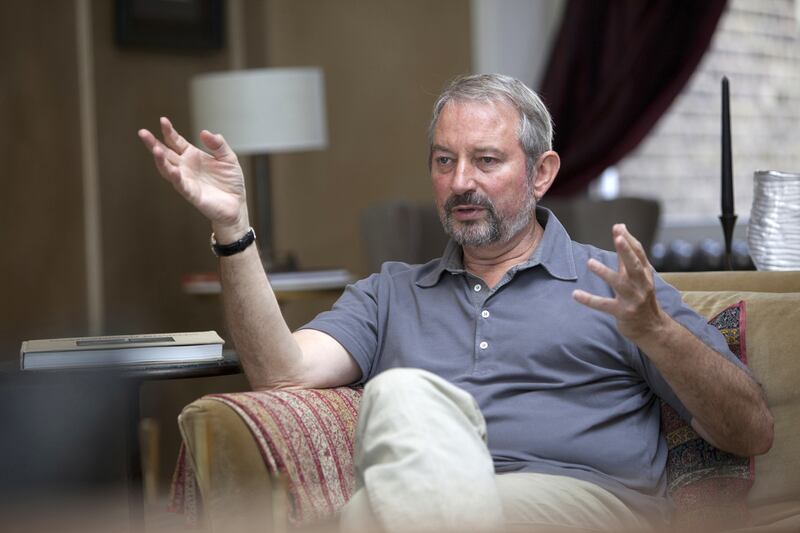The UAE has a crucial role to play in the economic reconstruction of the Palestinian Territories, according to the new man in charge of investment at the Middle East Quartet, the international body trying to revive the peace process there.
Kito be Boer, who became head of mission for the office of the Quartet last year, told The National that the UAE and other Arabian Gulf states could help with sovereign and private sector investment into Palestine, and also provide a model for nation-building.
“I’ve been very impressed by what the Gulf states, especially Abu Dhabi, have been doing in Egypt and Jordan to help those countries with their very serious issues. When Abu Dhabi wants to help an ally, it does so with generosity and intelligence. It is seen as a very constructive partner in the regional debate,” he said.
The Quartet was established in 2002 as an informal group consisting of the United Nations, the European Union, the United States and Russia. Its mandate is to help mediate Middle East peace negotiations and support Palestinian economic development and institution-building ahead of eventual statehood.
In his first newspaper interview since taking up the Quartet role, Mr de Boer, formerly the Dubai-based head of the Middle East office of management consultant McKinsey & Company, added: “The UAE has shown it is good at balancing identity issues in its own country. The UAE has a single flag, yet manages to have a political system that retains a large degree of autonomy with each emirate.”
However, Mr de Boer, who has taken over many of the Quartet responsibilities of the former British prime minister Tony Blair, is in no doubt about the uphill task the Quartet faces in its efforts to attract investment to the creaking Palestinian economy.
“Since my arrival I cannot point to a single example of investment or job creation. But within the next year I hope to be able to identify three to five investments that we have helped to shape, accelerate and hopefully translate into reality. The Gulf will be important in this context,” he said.
The Initiative for the Palestinian Economy (IPE) – a US$4 billion “Marshall Plan” for the region launched by the US secretary of state John Kerry more than two years ago – has stalled, along with the political peace process.
Another initiative led by Israeli and Palestinian businessmen called “Breaking the Impasse” (BTI) similarly failed to get off the ground.
“The $4bn is very modest. Most reports indicate Palestinian GDP would be doubled without the Israeli occupation, and investment would be north of $10bn,” Mr de Boer said.
“What has got significantly worse has been the health of the Palestinian private sector. Twenty years ago businesses were investing in the future, some 12.7 per cent of GDP in the late 1990s. Today it’s 4.5 per cent, barely keeping pace with depreciation,” he added.
He said that the BTI remained “potentially important as a means of mobilising the business community, and important constituency, especially in Israel”.
Despite improvements in Palestinian economic life in the past 20 years – in security, a lowering of corruption and the rule of law – “what has been lost is hope”, he said. “Gaza is a humanitarian crisis, with the highest unemployment in the world, 85 per cent of the population are on some form of aid.
“In the West Bank the majority of the population have only known occupation and believe that their future depends on the decisions of other forces, not their own endeavour.
“These are dark days but changes in Palestine over the next year or two will provide relevant and important foundations for what we’re trying to achieve,” Mr de Boer said.
fkane@thenational.ae
Follow The National's Business section on Twitter





